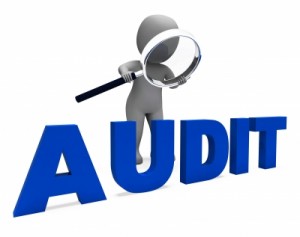
Are you ready to file these required forms? The LAST thing any employer wants is to be delinquent in the employer’s tax filing requirements. What is required and when?
..
December 31st marked the end of the fourth quarter of the calendar year. Fourth quarter employers’ reports due by January 31st. You must give your employees their W2 forms by January 31st. You must also give any independent contractors their Forms 1099 Miscellaneous by January 31st. Caution: Do NOT make the costly mistake of treating an employee as an independent contractor! Attention Employees – the next blog is devoted to YOU!
..
In addition to the W2 forms given to the employee, you must also send a copy to Social Security Administration (SSA) with the transmittal Form W3. If you withheld state taxes for the benefit of your employee, you must send a W2 copy to your state (with your state’s W3 equivalent). Form W3 must be filed with SSA by the last day of February. I tell my employer clients there is no penalty for filing early. If you file the W3 at the same time as you issue the W2 forms, you are more likely to file it on time. There is no real benefit in waiting to file these forms.
..
Most employers file the quarterly report Form 941 to report the taxes withheld from the employees’ paychecks. The taxes withheld include the employees’ federal income taxes, Social Security taxes and Medicare taxes. PLUS the employer matches the Social Security and Medicare taxes. If you are self-employed you are considered both employer and employee and you pay the full 15.3 percent of earnings.
..
You may be a small employer that has been given permission from the IRS to file an annual Form 944 instead of the quarterly Form 941. Form 944 is due by January 31st for the preceding calendar year’s wages paid.
..
In addition to Form 941 (or Form 944), Forms W2/W3 and state equivalent forms, you must also file (and pay) by January 31st, your 4th Quarter state income tax withholding report, file (and pay) your 4th Quarter state unemployment tax report, and file (and pay) your annual federal unemployment tax report Form 940. Only the first $7000 of wages paid to a covered employee is generally all that is subject to Unemployment tax. Remember to take into account any deposits you made during the earlier quarters for federal unemployment taxes.
To recap:
By January 31, 2014:
1. File Form 941 for the 4th quarter 2013 OR Form 944 for the whole year 2013
2. File your state’s 4th Quarter 2013 income tax withholding tax reports
3. File your state’s 4th Quarter 2013 unemployment tax report
4. File Form 940 for the whole year 2013 federal unemployment tax report
5. Give Forms W2 to your employees
6. Give Forms 1099 to your independent contractors
By February 28, 2014 :
1. Send Form W3 with Copy A of all Forms W2 to Social Security Administration
2. DO not mail the W3/W2 to IRS, it goes to SSA
3. Mail Form 1096 with IRS copy of Forms 1099 to the Internal Revenue Service.
4. 1096 is the form that goes to IRS
5. I’s OKAY to file these transmittal forms in January. You don’t have to wait till February 28th.
 Even though electronic tax filing season will begin January 20th this year, January 31 is the deadline for many of your “Important Tax Information” reports to be mailed to you. You may even have received some of them early. They truly are important for you, but they are a goldmine for identity thieves. That being said….get them out of your mailbox and into a safer place right away.
The reason we are getting them in the first place is that they are also important to the IRS. The IRS gets copies of these forms too. If you happen to forget to include income on your return, don’t worry, the IRS will certainly be contacting you.
A W-2 is the key form for employees. You need to report the wages you earned from each employer you worked for during the year. This form also reports the income taxes withheld from your earnings and other important information.
A 1099-MISC is the key form for independent contractors or business owners. Much like the W-2 for employees, this is the form that businesses report total yearly payments of $600 or more to workers who are not considered employees. If you think you are an employee and get a 1099-Misc instead of a W-2, I’d like to consult with you. If your business has taken the steps to become a corporation or partnership, you may receive a W-2 or a K-1.
Form K-1 is used by various entities to report earnings and other tax return related information. S-Corporations, Partnerships, Trusts and Estates use this form to “pass through” income and expenses to owners, partners and heirs. Your tax return cannot be completed until this K-1 is reviewed. If the business has filed an extension of time to file the business return, you may not get this form until close to, or even after, the April filing deadline for individual returns. If this is the case for you, you will need to file an extension for your individual tax return.
A W-2G is used to report Gambling Winnings. There are different reporting requirements depending on the type of game you won. Just because you were the WINNER does not mean you are ahead “of the game” and had a profit. It means you had a WIN. To avoid an IRS inquiry, report ALL gambling winnings, whether or not you received a W2G. Be sure to keep a log of your Gambling Activity. See my blog on Gambling Winnings and Losses for more information.
1099-G is issued by states when you receive a tax refund of state or local taxes. This refund may or may not be fully taxable to you. Consult with your tax advisor. A separate form of this same number will also report unemployment benefits paid to you. Unemployment benefits received are income taxable and must be reported on your tax return.
Next week we’ll cover more of the 1099 series of forms you need to watch for. We will also cover the newest of forms, the 1095A which has to do with the Affordable Care Act (Obamacare) and your MarketPlace Premium Discount.
The US Tax Code states all income is reportable except that which is specifically exempt from tax. Protect yourself from IRS audit by reporting all of your income.
Even though electronic tax filing season will begin January 20th this year, January 31 is the deadline for many of your “Important Tax Information” reports to be mailed to you. You may even have received some of them early. They truly are important for you, but they are a goldmine for identity thieves. That being said….get them out of your mailbox and into a safer place right away.
The reason we are getting them in the first place is that they are also important to the IRS. The IRS gets copies of these forms too. If you happen to forget to include income on your return, don’t worry, the IRS will certainly be contacting you.
A W-2 is the key form for employees. You need to report the wages you earned from each employer you worked for during the year. This form also reports the income taxes withheld from your earnings and other important information.
A 1099-MISC is the key form for independent contractors or business owners. Much like the W-2 for employees, this is the form that businesses report total yearly payments of $600 or more to workers who are not considered employees. If you think you are an employee and get a 1099-Misc instead of a W-2, I’d like to consult with you. If your business has taken the steps to become a corporation or partnership, you may receive a W-2 or a K-1.
Form K-1 is used by various entities to report earnings and other tax return related information. S-Corporations, Partnerships, Trusts and Estates use this form to “pass through” income and expenses to owners, partners and heirs. Your tax return cannot be completed until this K-1 is reviewed. If the business has filed an extension of time to file the business return, you may not get this form until close to, or even after, the April filing deadline for individual returns. If this is the case for you, you will need to file an extension for your individual tax return.
A W-2G is used to report Gambling Winnings. There are different reporting requirements depending on the type of game you won. Just because you were the WINNER does not mean you are ahead “of the game” and had a profit. It means you had a WIN. To avoid an IRS inquiry, report ALL gambling winnings, whether or not you received a W2G. Be sure to keep a log of your Gambling Activity. See my blog on Gambling Winnings and Losses for more information.
1099-G is issued by states when you receive a tax refund of state or local taxes. This refund may or may not be fully taxable to you. Consult with your tax advisor. A separate form of this same number will also report unemployment benefits paid to you. Unemployment benefits received are income taxable and must be reported on your tax return.
Next week we’ll cover more of the 1099 series of forms you need to watch for. We will also cover the newest of forms, the 1095A which has to do with the Affordable Care Act (Obamacare) and your MarketPlace Premium Discount.
The US Tax Code states all income is reportable except that which is specifically exempt from tax. Protect yourself from IRS audit by reporting all of your income.  Even though electronic tax filing season will begin January 20th this year, January 31 is the deadline for many of your “Important Tax Information” reports to be mailed to you. You may even have received some of them early. They truly are important for you, but they are a goldmine for identity thieves. That being said….get them out of your mailbox and into a safer place right away.
The reason we are getting them in the first place is that they are also important to the IRS. The IRS gets copies of these forms too. If you happen to forget to include income on your return, don’t worry, the IRS will certainly be contacting you.
A W-2 is the key form for employees. You need to report the wages you earned from each employer you worked for during the year. This form also reports the income taxes withheld from your earnings and other important information.
A 1099-MISC is the key form for independent contractors or business owners. Much like the W-2 for employees, this is the form that businesses report total yearly payments of $600 or more to workers who are not considered employees. If you think you are an employee and get a 1099-Misc instead of a W-2, I’d like to consult with you. If your business has taken the steps to become a corporation or partnership, you may receive a W-2 or a K-1.
Form K-1 is used by various entities to report earnings and other tax return related information. S-Corporations, Partnerships, Trusts and Estates use this form to “pass through” income and expenses to owners, partners and heirs. Your tax return cannot be completed until this K-1 is reviewed. If the business has filed an extension of time to file the business return, you may not get this form until close to, or even after, the April filing deadline for individual returns. If this is the case for you, you will need to file an extension for your individual tax return.
A W-2G is used to report Gambling Winnings. There are different reporting requirements depending on the type of game you won. Just because you were the WINNER does not mean you are ahead “of the game” and had a profit. It means you had a WIN. To avoid an IRS inquiry, report ALL gambling winnings, whether or not you received a W2G. Be sure to keep a log of your Gambling Activity. See my blog on Gambling Winnings and Losses for more information.
1099-G is issued by states when you receive a tax refund of state or local taxes. This refund may or may not be fully taxable to you. Consult with your tax advisor. A separate form of this same number will also report unemployment benefits paid to you. Unemployment benefits received are income taxable and must be reported on your tax return.
Next week we’ll cover more of the 1099 series of forms you need to watch for. We will also cover the newest of forms, the 1095A which has to do with the Affordable Care Act (Obamacare) and your MarketPlace Premium Discount.
The US Tax Code states all income is reportable except that which is specifically exempt from tax. Protect yourself from IRS audit by reporting all of your income.
Even though electronic tax filing season will begin January 20th this year, January 31 is the deadline for many of your “Important Tax Information” reports to be mailed to you. You may even have received some of them early. They truly are important for you, but they are a goldmine for identity thieves. That being said….get them out of your mailbox and into a safer place right away.
The reason we are getting them in the first place is that they are also important to the IRS. The IRS gets copies of these forms too. If you happen to forget to include income on your return, don’t worry, the IRS will certainly be contacting you.
A W-2 is the key form for employees. You need to report the wages you earned from each employer you worked for during the year. This form also reports the income taxes withheld from your earnings and other important information.
A 1099-MISC is the key form for independent contractors or business owners. Much like the W-2 for employees, this is the form that businesses report total yearly payments of $600 or more to workers who are not considered employees. If you think you are an employee and get a 1099-Misc instead of a W-2, I’d like to consult with you. If your business has taken the steps to become a corporation or partnership, you may receive a W-2 or a K-1.
Form K-1 is used by various entities to report earnings and other tax return related information. S-Corporations, Partnerships, Trusts and Estates use this form to “pass through” income and expenses to owners, partners and heirs. Your tax return cannot be completed until this K-1 is reviewed. If the business has filed an extension of time to file the business return, you may not get this form until close to, or even after, the April filing deadline for individual returns. If this is the case for you, you will need to file an extension for your individual tax return.
A W-2G is used to report Gambling Winnings. There are different reporting requirements depending on the type of game you won. Just because you were the WINNER does not mean you are ahead “of the game” and had a profit. It means you had a WIN. To avoid an IRS inquiry, report ALL gambling winnings, whether or not you received a W2G. Be sure to keep a log of your Gambling Activity. See my blog on Gambling Winnings and Losses for more information.
1099-G is issued by states when you receive a tax refund of state or local taxes. This refund may or may not be fully taxable to you. Consult with your tax advisor. A separate form of this same number will also report unemployment benefits paid to you. Unemployment benefits received are income taxable and must be reported on your tax return.
Next week we’ll cover more of the 1099 series of forms you need to watch for. We will also cover the newest of forms, the 1095A which has to do with the Affordable Care Act (Obamacare) and your MarketPlace Premium Discount.
The US Tax Code states all income is reportable except that which is specifically exempt from tax. Protect yourself from IRS audit by reporting all of your income. 

 I’m not talking vinyl music platters…I’m talking receipts. I’m talking about saving your business butt. I’m talking about saving your personal assets.
I was shocked when training with the Internal Revenue Service to find out that you (and me, too), the taxpayer, are considered GUILTY until you PROVE YOURSELF innocent. That was so against what I had grown up with in this great country of America, the land of Superman and Perry Mason.
Do you have what it takes to prove yourself innocent? How do you do that? Well, it’s very simple. It can also be considered boring drudgery, but it is your best defense. It’s called record keeping.
Did you know that thermal paper receipts will fade over time. It is guaranteed! That printed strip of paper showing the date, the place of purchase, the item purchased and the amount you paid is so clear when you first get it. But when you look at it later it has begun to fade. And if you need it to show the IRS one or two years later, it could be completely blank.
So how do you protect yourself with this paper that you need so badly? Put it in a copy machine and make a photocopy. Or scan it into your computer. If you have a paper copy, you will want a file folder or envelope or box to organize your papers. If you use a scanner, you will want to set up a folder on your computer so you know how to go back and find what you need later.
Is this necessary for everyone? Yes. If you own a business or are self-employed you have a business tax return to file. And every person who owns a business must also file a personal tax return.
It is important to keep your business records separate from your personal records. It is important to keep the records for one year separate from the records for another year.
Did you know that the biggest gangster in Chicago during the Roaring Twenties, the 1920s, did not go to jail for moonshining, or drug running, or gambling or prostitution? Elliott Ness of Untouchables fame, was really an IRS Agent. This famous gangster, Al Capone. went to jail for tax evasion. He did not keep track of his income and expenses. Or did he? He just didn’t put all of the right numbers on his tax return.
Years ago, on the 10pm TV news they used to say, “It’s 10 o’clock. Do you know where your children are?” And today I submit to you, It’s the last quarter of this year. Do you know what your numbers are? Do you know where that receipt is?
I’ll be asking my clients for all their numbers come tax season. Get a jump on it. Catch up on what you could have done earlier this year. I’ll be asking you for your true numbers and I want you to be ready. They are your best audit defense.
I’m not talking vinyl music platters…I’m talking receipts. I’m talking about saving your business butt. I’m talking about saving your personal assets.
I was shocked when training with the Internal Revenue Service to find out that you (and me, too), the taxpayer, are considered GUILTY until you PROVE YOURSELF innocent. That was so against what I had grown up with in this great country of America, the land of Superman and Perry Mason.
Do you have what it takes to prove yourself innocent? How do you do that? Well, it’s very simple. It can also be considered boring drudgery, but it is your best defense. It’s called record keeping.
Did you know that thermal paper receipts will fade over time. It is guaranteed! That printed strip of paper showing the date, the place of purchase, the item purchased and the amount you paid is so clear when you first get it. But when you look at it later it has begun to fade. And if you need it to show the IRS one or two years later, it could be completely blank.
So how do you protect yourself with this paper that you need so badly? Put it in a copy machine and make a photocopy. Or scan it into your computer. If you have a paper copy, you will want a file folder or envelope or box to organize your papers. If you use a scanner, you will want to set up a folder on your computer so you know how to go back and find what you need later.
Is this necessary for everyone? Yes. If you own a business or are self-employed you have a business tax return to file. And every person who owns a business must also file a personal tax return.
It is important to keep your business records separate from your personal records. It is important to keep the records for one year separate from the records for another year.
Did you know that the biggest gangster in Chicago during the Roaring Twenties, the 1920s, did not go to jail for moonshining, or drug running, or gambling or prostitution? Elliott Ness of Untouchables fame, was really an IRS Agent. This famous gangster, Al Capone. went to jail for tax evasion. He did not keep track of his income and expenses. Or did he? He just didn’t put all of the right numbers on his tax return.
Years ago, on the 10pm TV news they used to say, “It’s 10 o’clock. Do you know where your children are?” And today I submit to you, It’s the last quarter of this year. Do you know what your numbers are? Do you know where that receipt is?
I’ll be asking my clients for all their numbers come tax season. Get a jump on it. Catch up on what you could have done earlier this year. I’ll be asking you for your true numbers and I want you to be ready. They are your best audit defense. 





